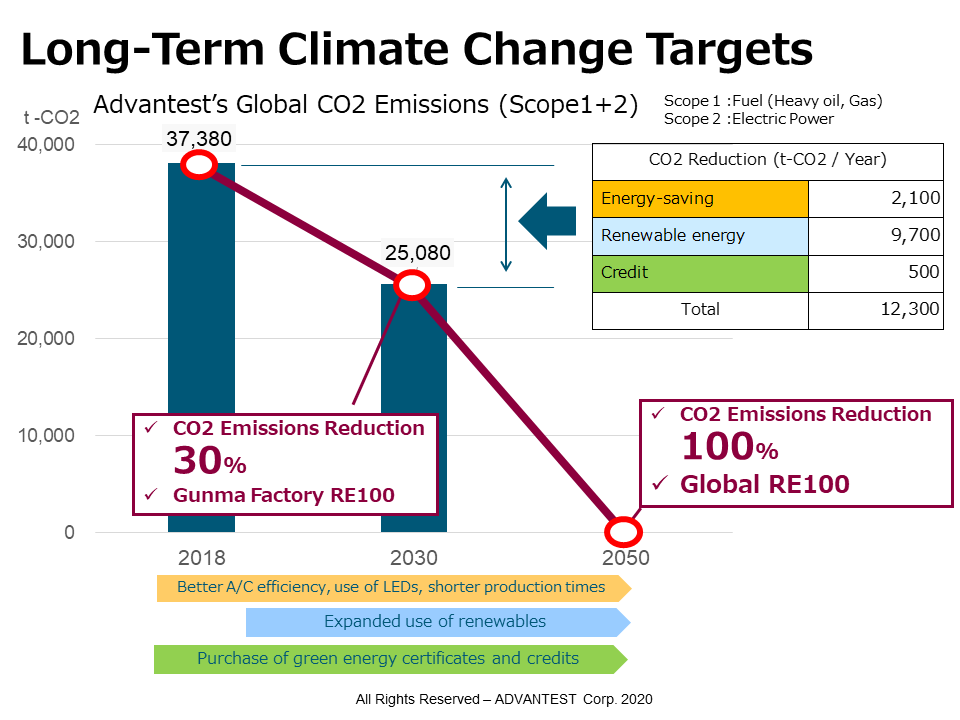Advantest announces support for TCFD recommendations
Advantest has announced its support for the recommendations of the TCFD (Task Force on Climate-related Financial Disclosures).
The company is committed to analysing the risks and opportunities of climate change from the perspectives of strategy, risk management, and governance, and intends to proactively develop a global response, while reinforcing information disclosure based on the recommendations of the TCFD.
As a part of its ‘The Advantest Way’, the Advantest Group has defined a strategy to promote ESG management and contribute to humanity's sustainable future. Regarding global warming countermeasures, the company has set new long-term CO2 emissions reduction targets with the goal of mitigating climate change and moving towards zero carbon grids, in line with RE100.
The new long-term targets are based on 2018 global CO2 emissions (Scope 1 + 2: 37,380t -CO2). Advantest aims to reduce CO2 emissions by 30% by the end of 2030 and achieve RE100 at the company's Gunma Factory by promoting the introduction of renewables. The company's ultimate goal is to reduce CO2 emissions by 100% by the end of 2050 and achieve RE100 globally.

Advantest has been utilising renewable energy at its US subsidiary since 2012. From April 2020, 30% of the electricity used at the company's Gunma Factory, Gunma R&D Center, and Saitama R&D Center, in Japan, will be sourced from Aqua Premium, which supplies electricity exclusively from hydroelectric power plants that emit no CO2. This will reduce the company's emissions by approximately 3,700 t-CO2 annually.
Going forward, Advantest will expand the introduction of renewable energy at locations in each country where the company operates, taking into consideration availability in each region. Furthermore, in order to contribute to CO2 emissions reduction across the entire semiconductor supply chain, Advantest aims to source 100% of the electricity used for the production of semiconductor test equipment at the Gunma Factory from renewables by 2030.





